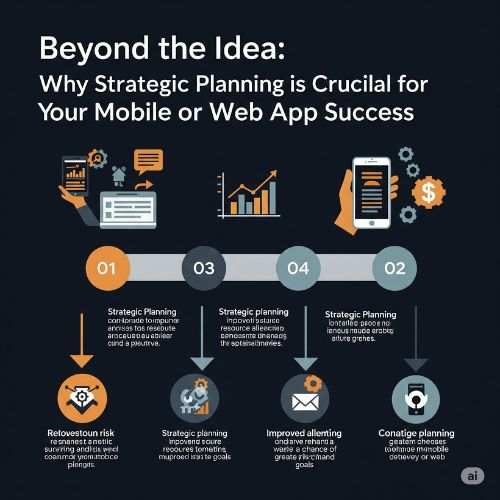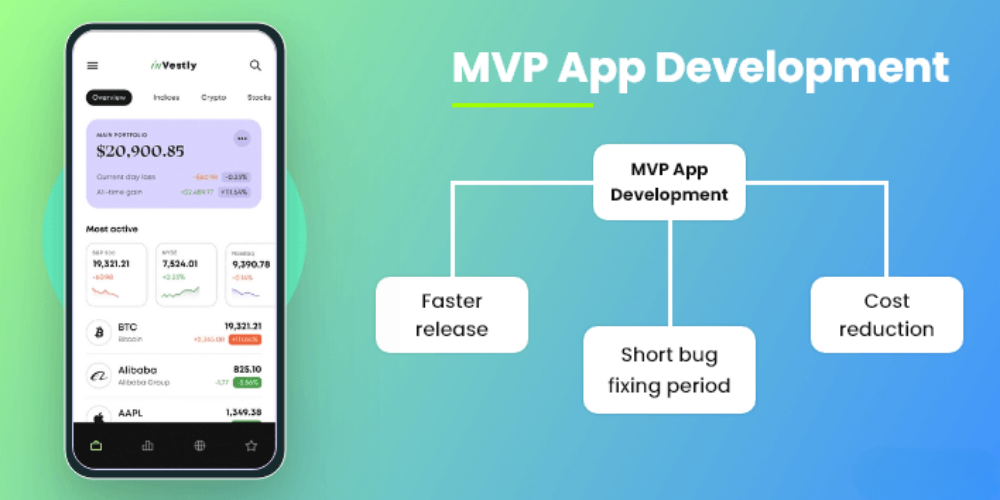
- Blog
- 14 May. 2025
Beyond the Buzz: Why Most Startup Apps Fail—and Your Guide to Building One That Soars
The world of startup apps is thrilling, brimming with innovation and potential. Yet, beneath the excitement lies a sobering reality: a staggering 90% of startup apps falter within their first year. While this statistic might seem daunting, the silver lining is that most of these failures are entirely preventable.
If you're an ambitious founder or business owner on the cusp of launching an app, understanding the common missteps is your first crucial step towards building a product that not only survives but thrives.
🚨 Decoding App Failure: The Pitfalls to Avoid
Let's dissect the primary reasons why promising app ventures often stumble:
1. The "Solution in Search of a Problem" Syndrome (No Market Need) Many apps are born from what seems like a brilliant idea, yet they fail to address a genuine, pressing problem for users. If your app doesn't fill a void or significantly improve an existing process, user adoption will be fleeting.
- The Fix: Rigorous idea validation is non-negotiable. Engage directly with your target audience. Are they actively seeking solutions for the problem your app aims to solve? If not, you might be building a product for a non-existent demand.
2. The Clunky Experience (Poor User Experience - UX) Even the most ingenious concept can be torpedoed by a frustrating user experience. An app that's slow, unintuitive, or riddled with bugs will quickly send users packing.
- The Fix: Prioritize UI/UX design from day one. Invest in clean, intuitive navigation, rapid load times, and seamless mobile responsiveness. Remember, simplicity and ease of use are paramount.
3. The Feature Overload Fiasco (Lack of a Clear MVP Strategy) Attempting to pack every conceivable feature into your initial launch is a recipe for delayed launches, spiraling costs, and developer burnout.
- The Fix: Embrace the Minimum Viable Product (MVP) approach. Launch with a focused, core set of features that deliver immediate value. This allows you to test your concept, gather real user feedback, and iterate strategically.
4. The Technical Debt Trap (Wrong Tech Stack or Poor Development) Choosing an unsuitable technology stack or partnering with inexperienced developers can lead to a cascade of issues—from persistent bugs and crashes to fundamental scalability limitations.
- The Fix: Select a development partner with a proven track record. They should possess not only coding prowess but also a deep understanding of your business objectives and the ability to build robust, scalable architecture.
5. The Silent Launch (Ineffective Marketing & Launch) Even the most perfectly engineered app can vanish into obscurity without a strategic launch and ongoing marketing efforts.
- The Fix: Develop your marketing and launch plan early. Leverage content marketing, social media engagement, strategic partnerships, and App Store Optimization (ASO) to generate buzz before and after your app goes live.
✅ Your Roadmap to App Success: A Proven Process
Now that we've identified what to avoid, let's outline a strategic framework for building an app that's poised for success:
1. Validate Your Idea with Real-World Insights:
- Engage directly with your ideal users through interviews and surveys.
- Confirm that your app addresses a genuine, urgent problem for your target audience.
2. Define a Lean, Focused MVP:
- Concentrate on 1-2 core features that deliver the most significant value.
- Prioritize impact over quantity, keeping development cycles short and agile.
3. Partner with the Right Tech Team:
- Seek developers who possess expertise in both business logic and scalable architecture.
- Look for experience relevant to your project type (e.g., SaaS, e-commerce, B2B, mobile).
4. Prioritize Exceptional UI/UX Design:
- Develop wireframes and interactive prototypes to visualize the user journey.
- Conduct user testing with real individuals before committing to full-scale development.
5. Plan for a Strategic Launch and Continuous Evolution:
- Integrate analytics tools (like Firebase, Mixpanel) from the outset to track performance.
- Build anticipation with a pre-launch waitlist or landing page.
- Commit to regular updates and actively solicit user feedback post-launch.
🎯 Final Thoughts: Strategy Over Chance
App startup success isn't left to chance; it's the result of clear strategy, meticulous execution, and a commitment to adaptability. By proactively addressing common pitfalls and following a disciplined roadmap, your app's chances of not just surviving but thriving in a competitive market dramatically increase.
If you're ready to transform your app idea into a tangible, market-ready product, our team at Metawish is here to guide you—from initial strategy and design to robust development and a successful launch.
👉 Contact us today for a free consultation and let's embark on your app's success story together.




